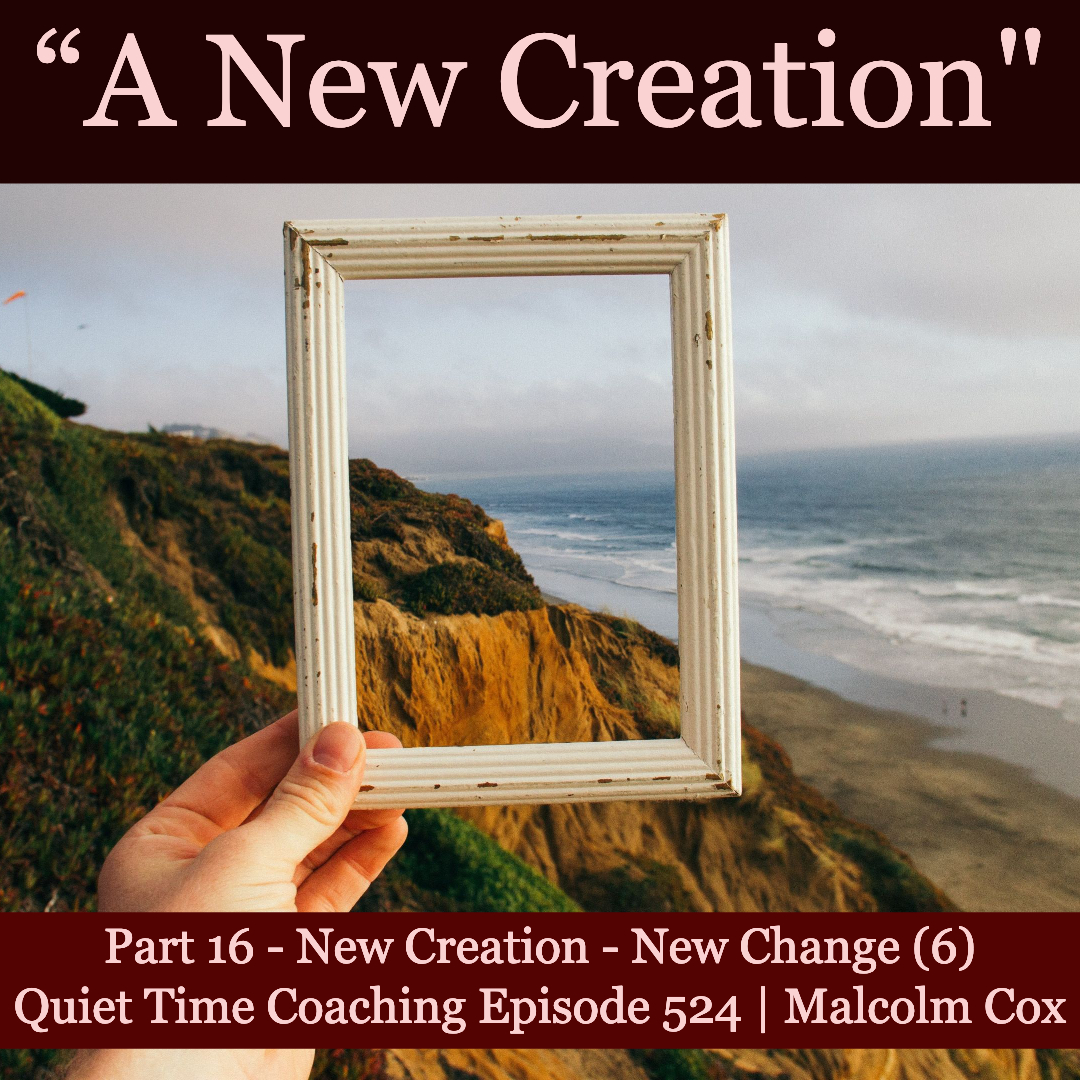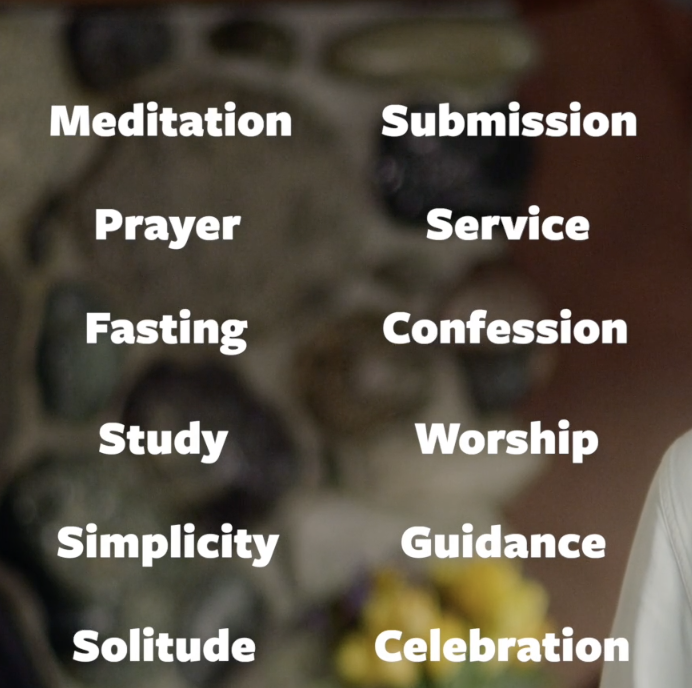
https://audioboom.com/posts/8521553
Introduction
A new creation! I’m Malcolm Cox. Welcome to this series on ‘A new creation’. Today, some more thoughts on how God changes us.
This week we take a look at some practicals of spiritual growth put forward by Richard Foster. His bio can be found here, and many helpful articles here. His book, Celebration of Discipline changed my life.
Foster offers us a list of twelve spiritual disciplines as outlined in the picture below.

Foster’s teachings offer a modern take on ancient practices, designed to help us grow closer to God. We’ll not unpack the disciplines today (read the book!), but we will explore some key principles.
- Spiritual Disciplines require self-discipline, but self-discipline is not what changes us
Richard Foster’s approach to spiritual disciplines isn’t about self-discipline. You see, self-discipline can only take us so far. It doesn’t have the power to conquer habitual sin or bring about deep, lasting change. For that, we need something more profound – we need inner transformation, and that’s where God steps in.
Righteousness is a gift from God (Romans 5.17). So, how do we align ourselves to receive this gift? This is where spiritual disciplines come into play.
Spiritual disciplines aren’t about passivity or self-effort. Instead, they place us in a position where God can do His transformative work within us. Think of them as invitations to access the power of God in our lives. By practicing these disciplines, we’re cooperating with God, opening ourselves up to His grace and strength.
- Delight in God and the spiritual disciplines will delight you
Foster teaches that the more we delight in God, the more our desires change to align with His. As we grow in our relationship with Him, our hearts begin to mirror His heart, and our desires start to reflect His desires.
Psalm 37.4
“Take delight in the LORD, and he will give you the desires of your heart.”
Remember, engaging in spiritual disciplines isn’t about passing a test or meeting a set standard. Foster encourages us to see these practices as a playground or a laboratory – a space to experiment, explore, and experience God’s freedom and joy. Jesus wants to set us free, but often, we make it harder than it needs to be.
Conclusion
Take a moment to consider: Is there a particular spiritual discipline that God might be inviting you into right now? It could be prayer, fasting, study, or something else entirely. Listen to that gentle nudge and explore what God might be leading you toward.
So, as you go about your week, I encourage you to embrace a spiritual discipline with a heart full of curiosity and openness. Allow God to work within you and transform you from the inside out.
Next time we will wrap up this focus on how we change.
Your brother, Malcolm
Please add your comments on this week’s topic. We learn best when we learn in community.
Do you have a question about teaching the Bible? Is it theological, technical, or practical? Could you send me your questions or suggestions? Here’s the email: malcolm@malcolmcox.org.
If you’d like a copy of my free eBook on spiritual disciplines, “How God Grows His People”, sign up at my website: http://www.malcolmcox.org.
Please pass the link on, subscribe, and leave a review.
“Carpe Diem” Kevin MacLeod (incompetech.com)
Licensed under Creative Commons: By Attribution 4.0 License
http://creativecommons.org/licenses/by/4.0/

